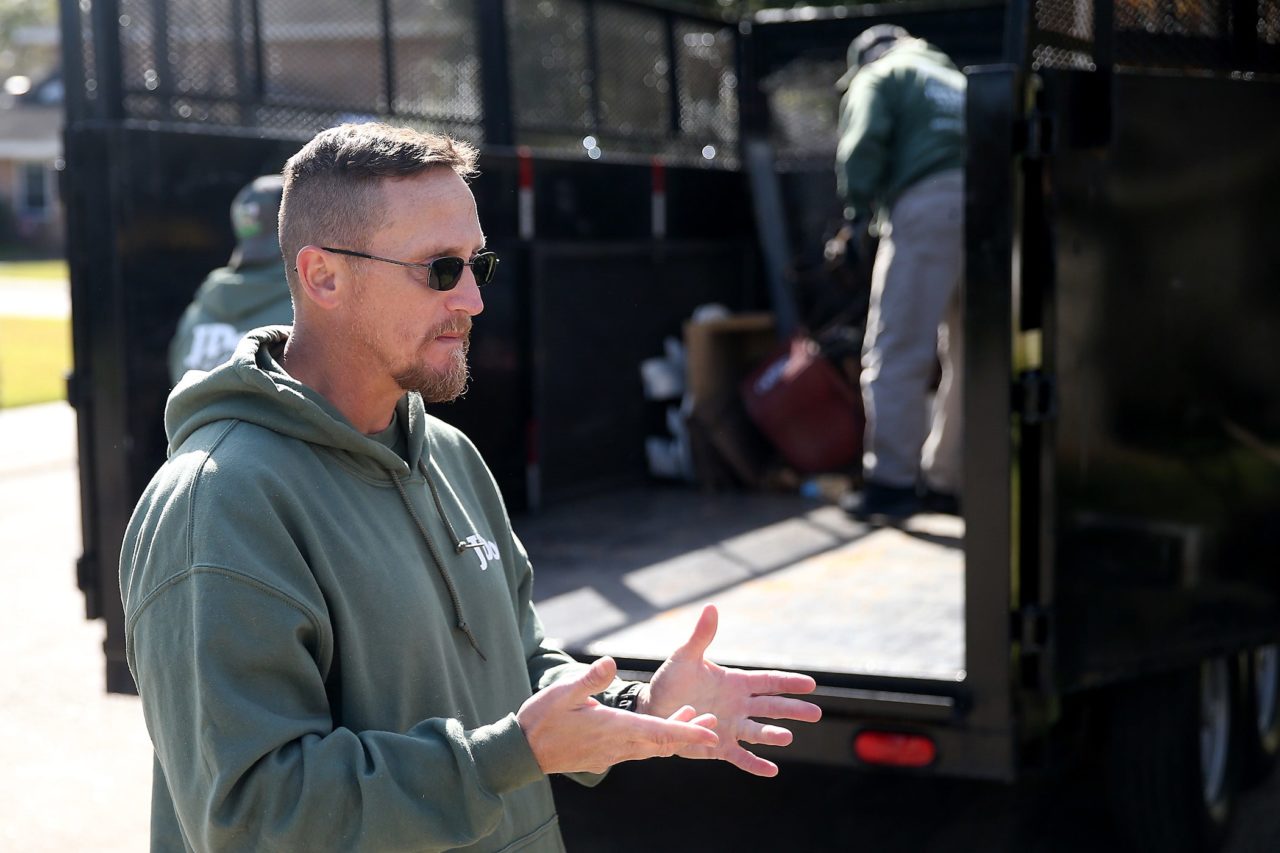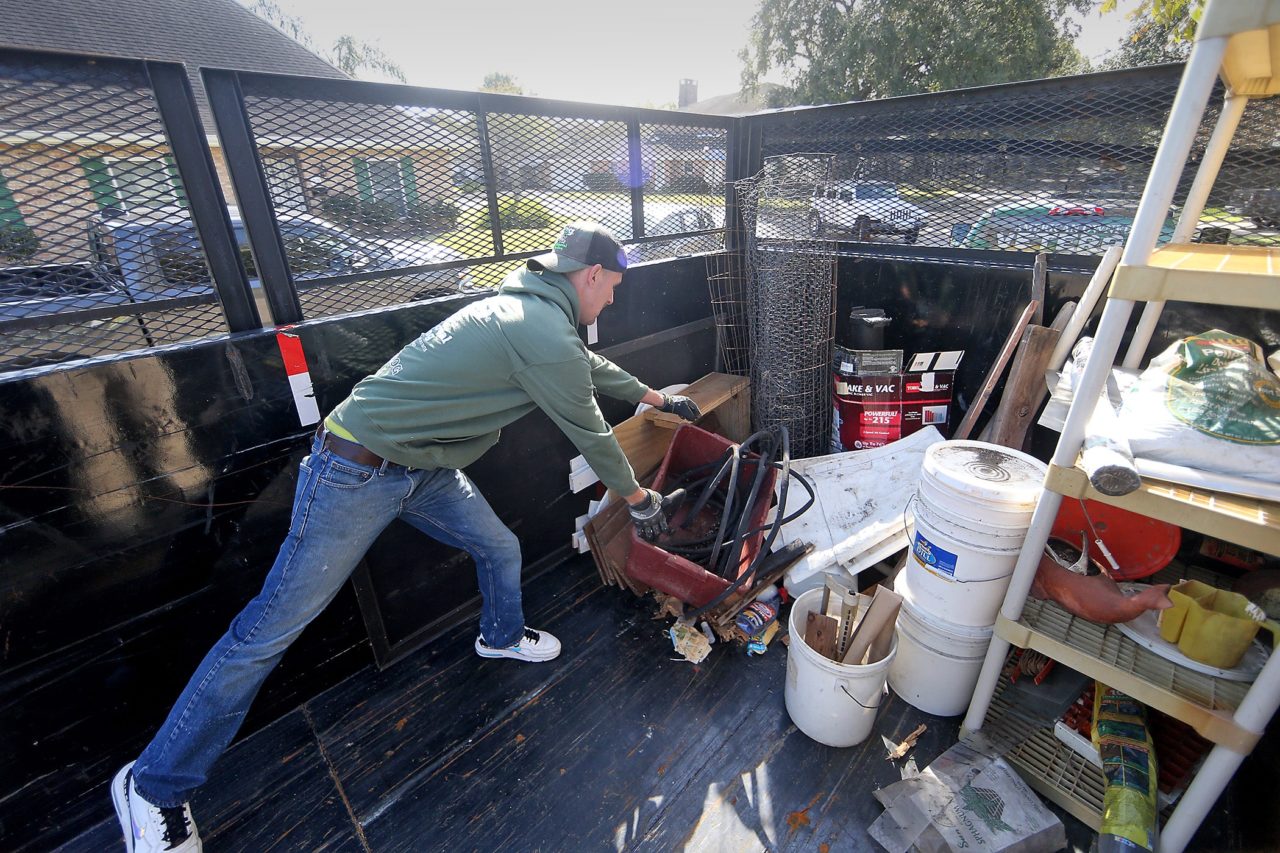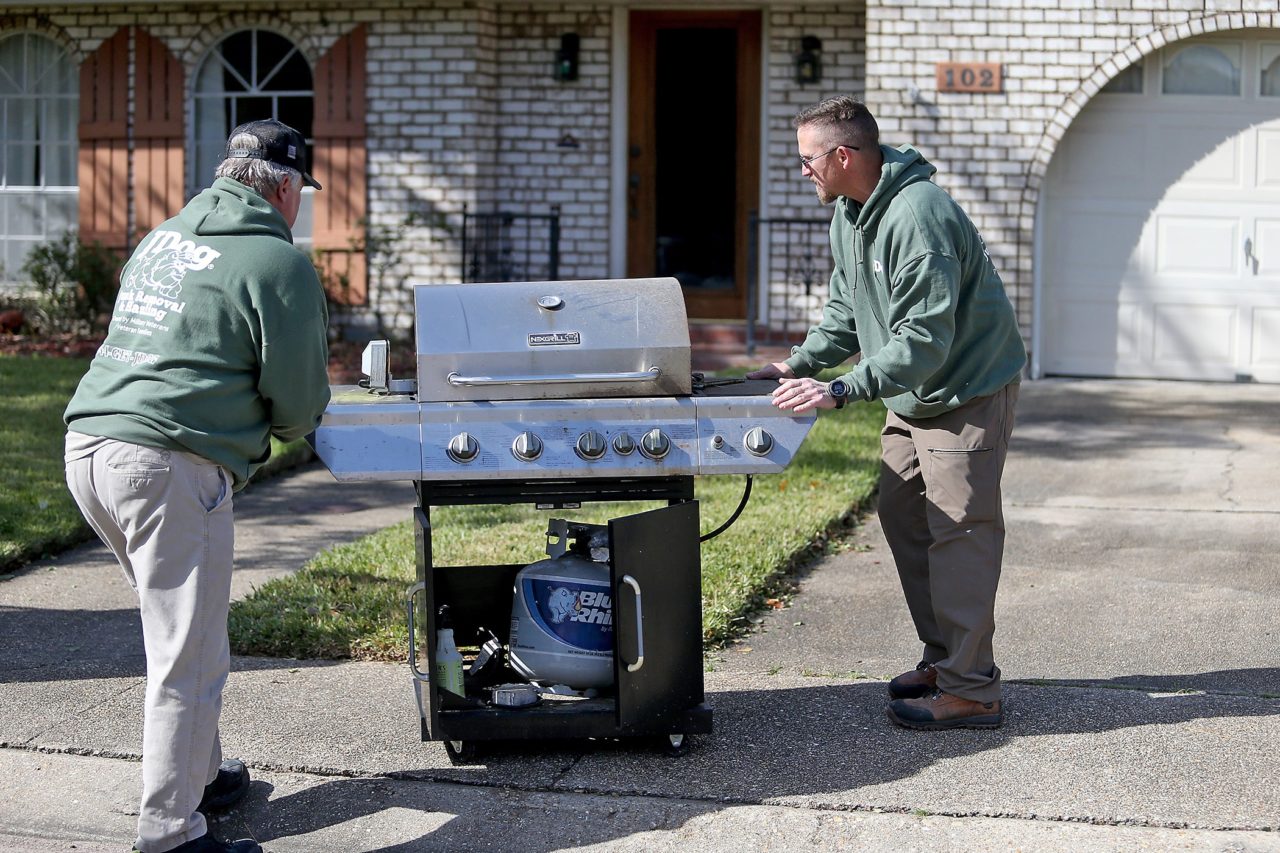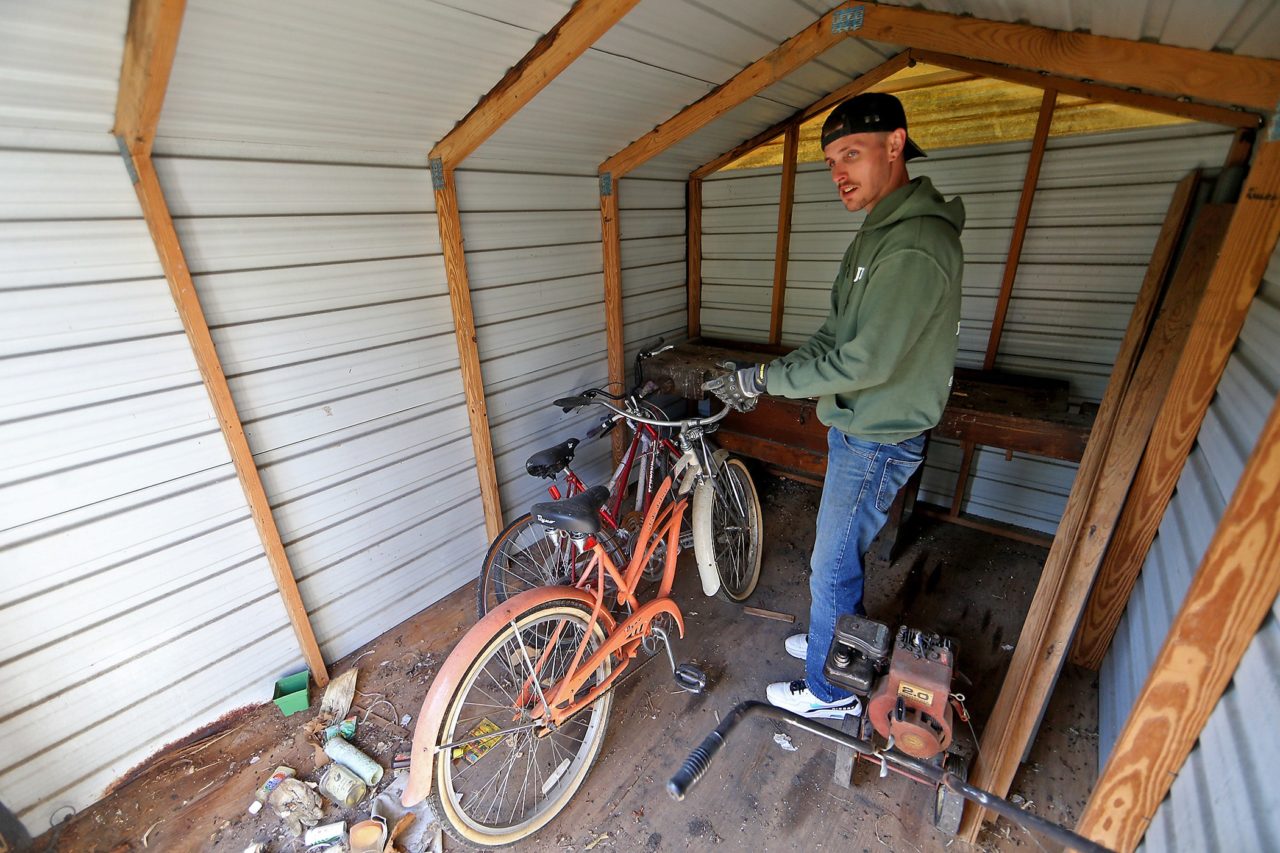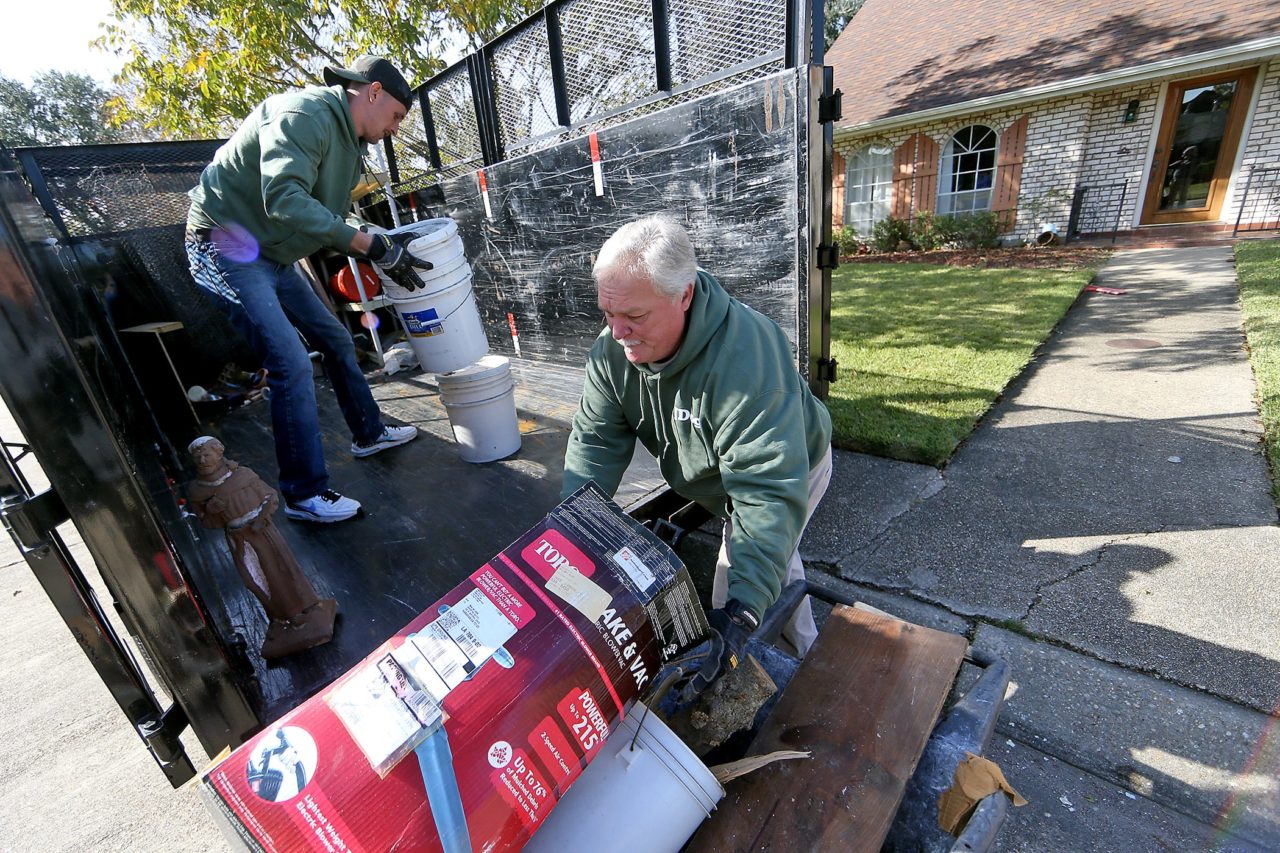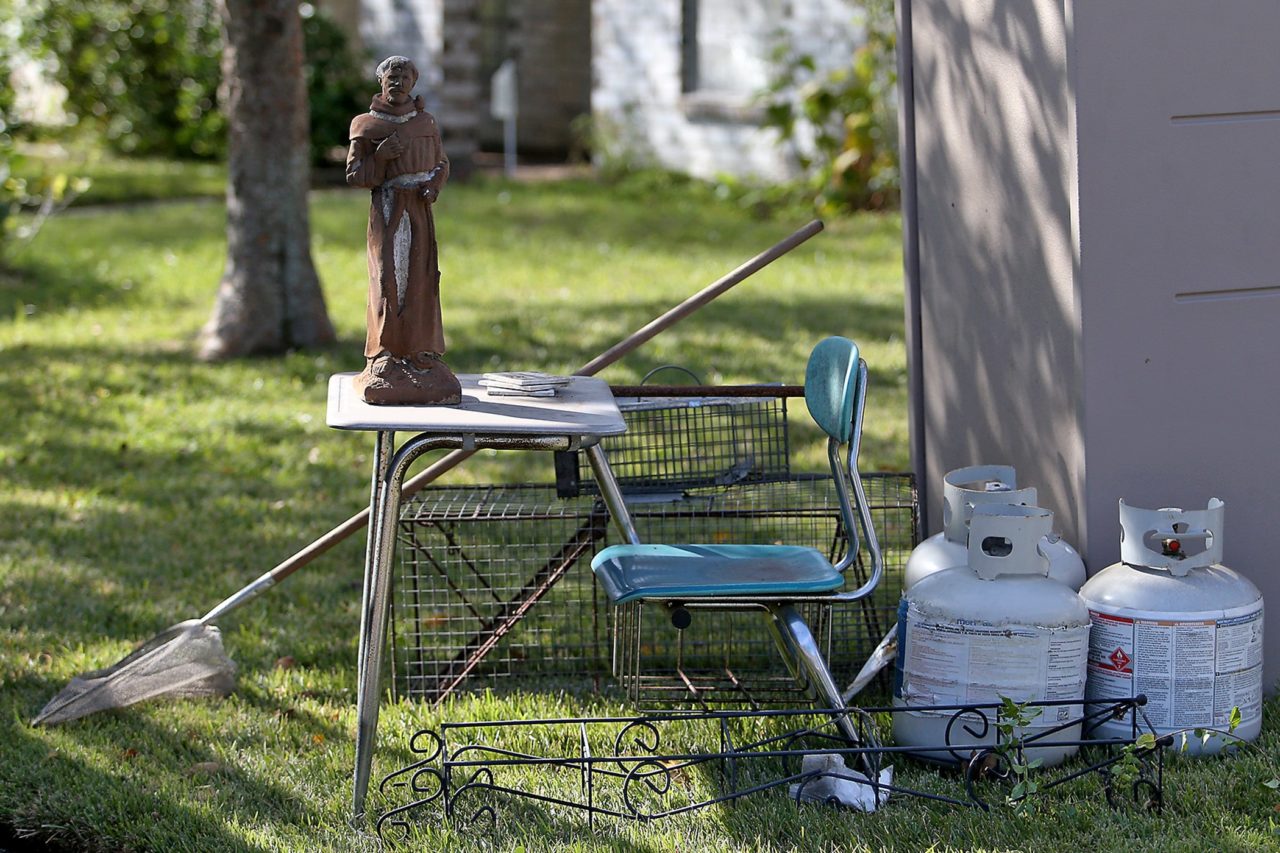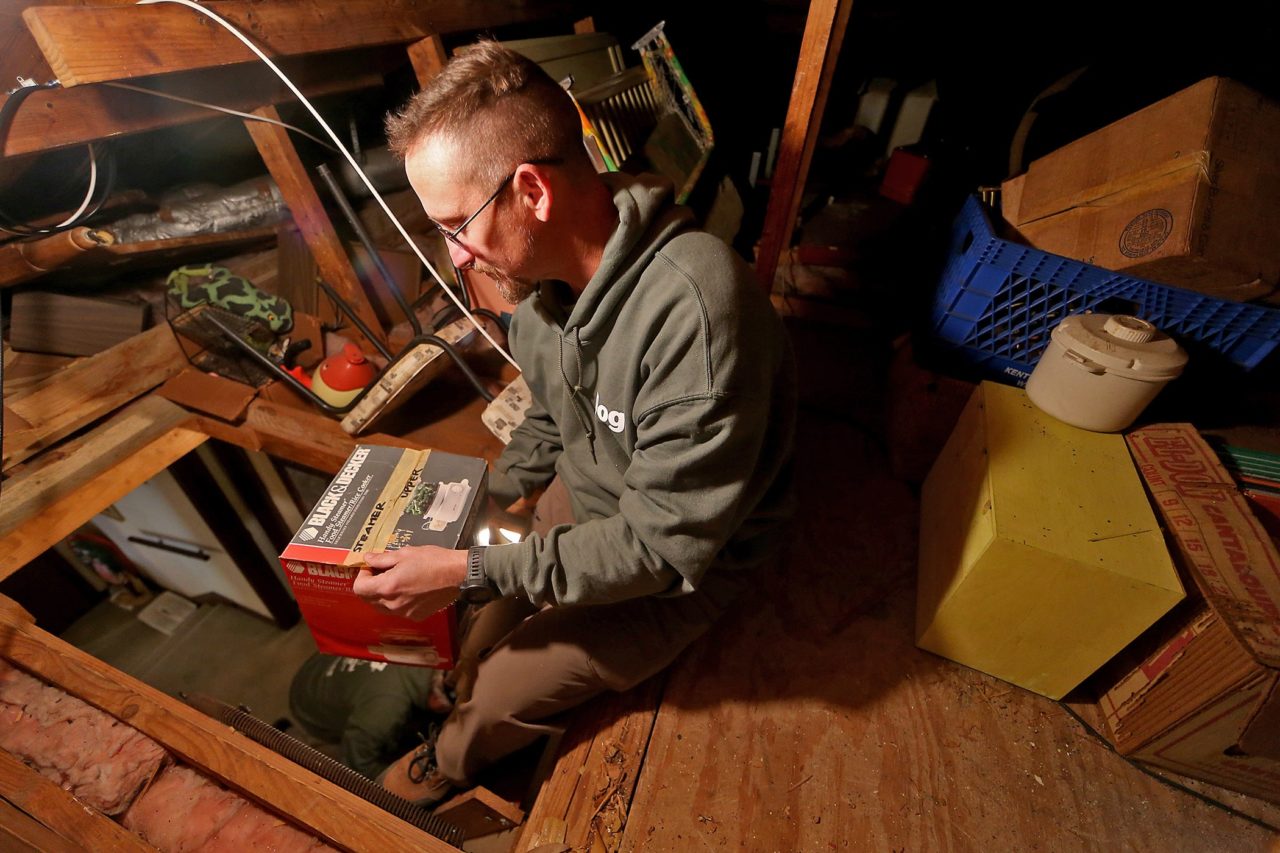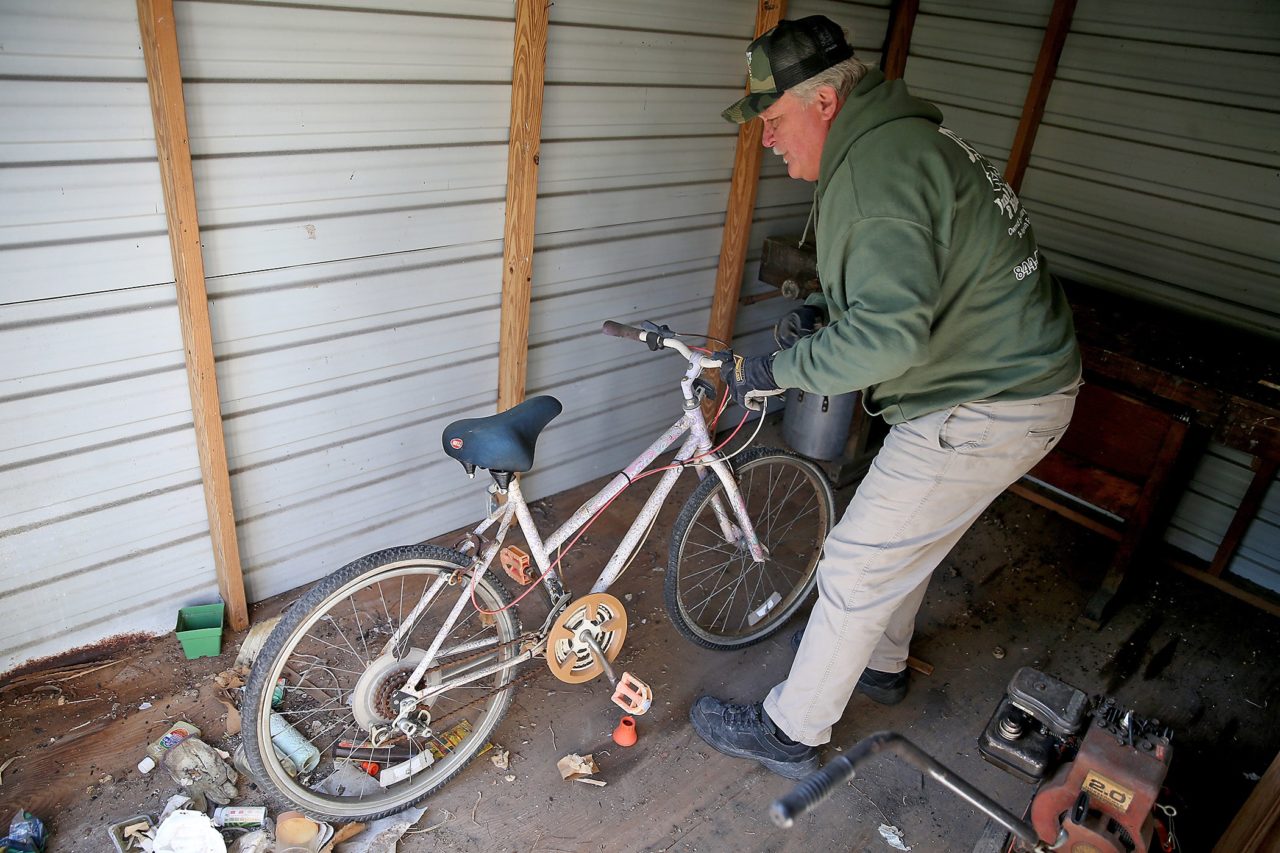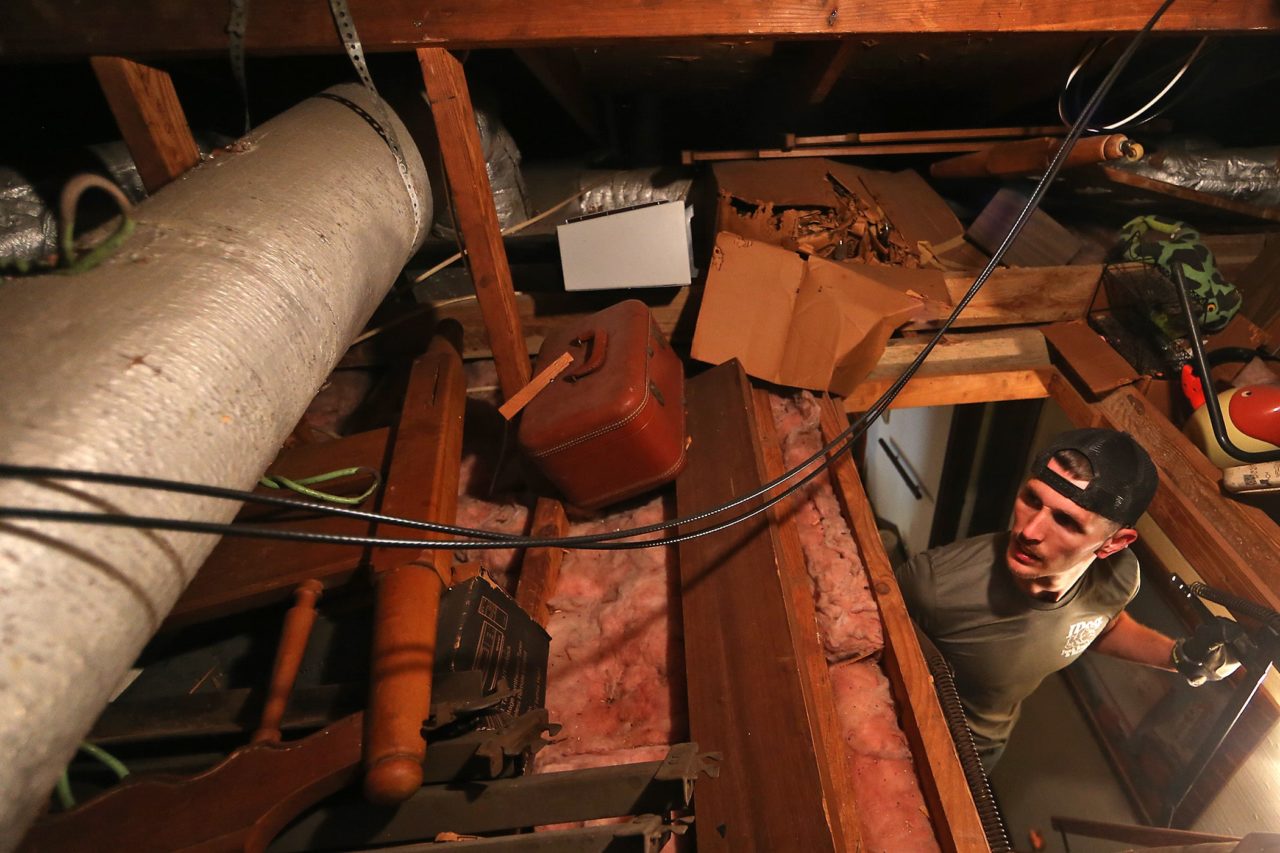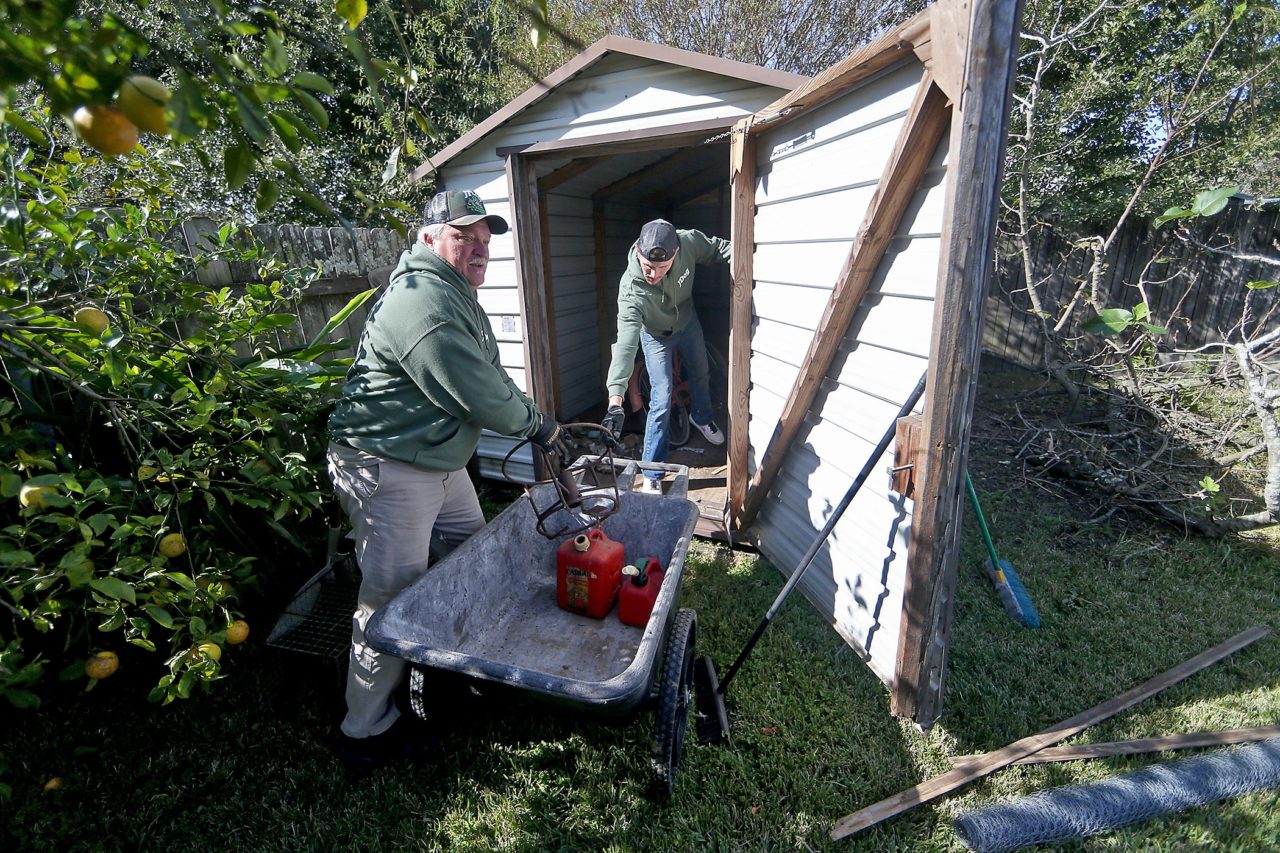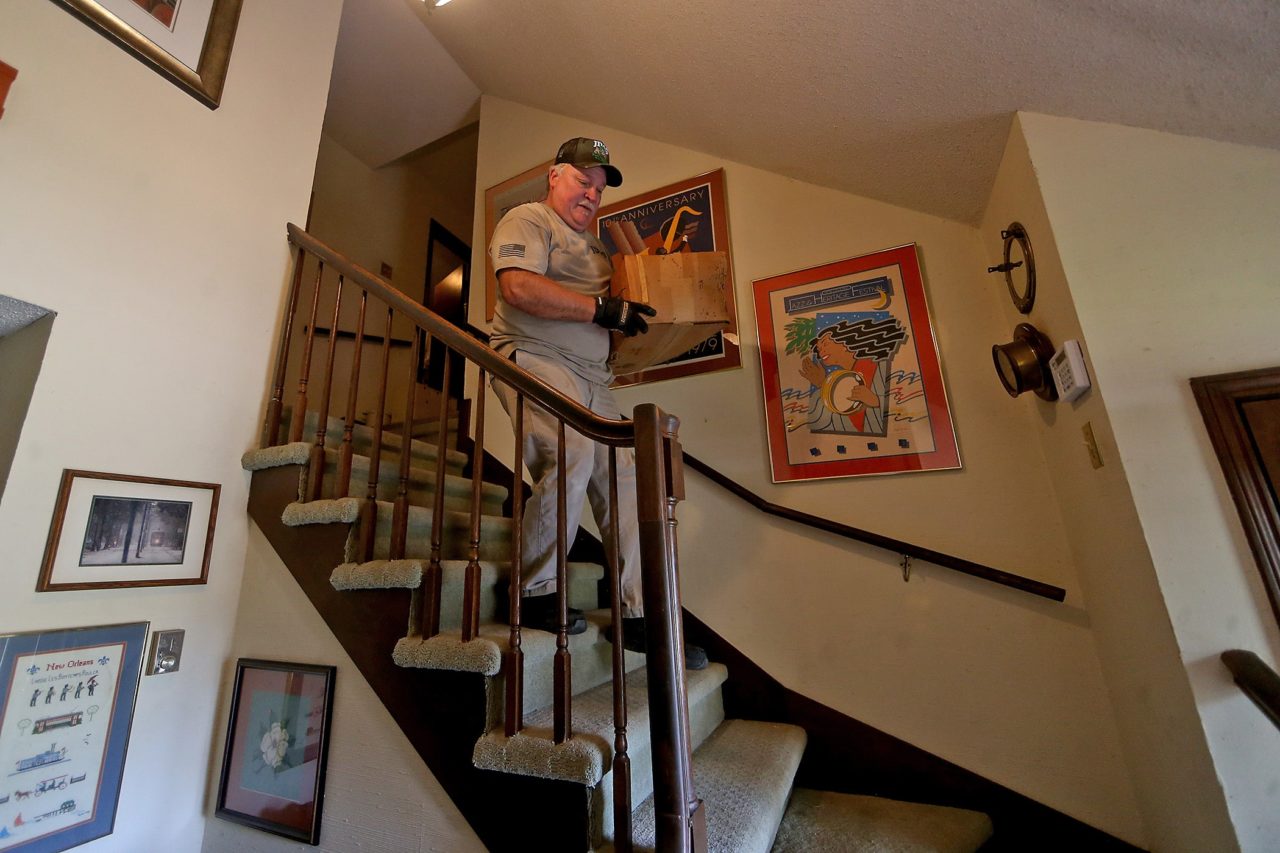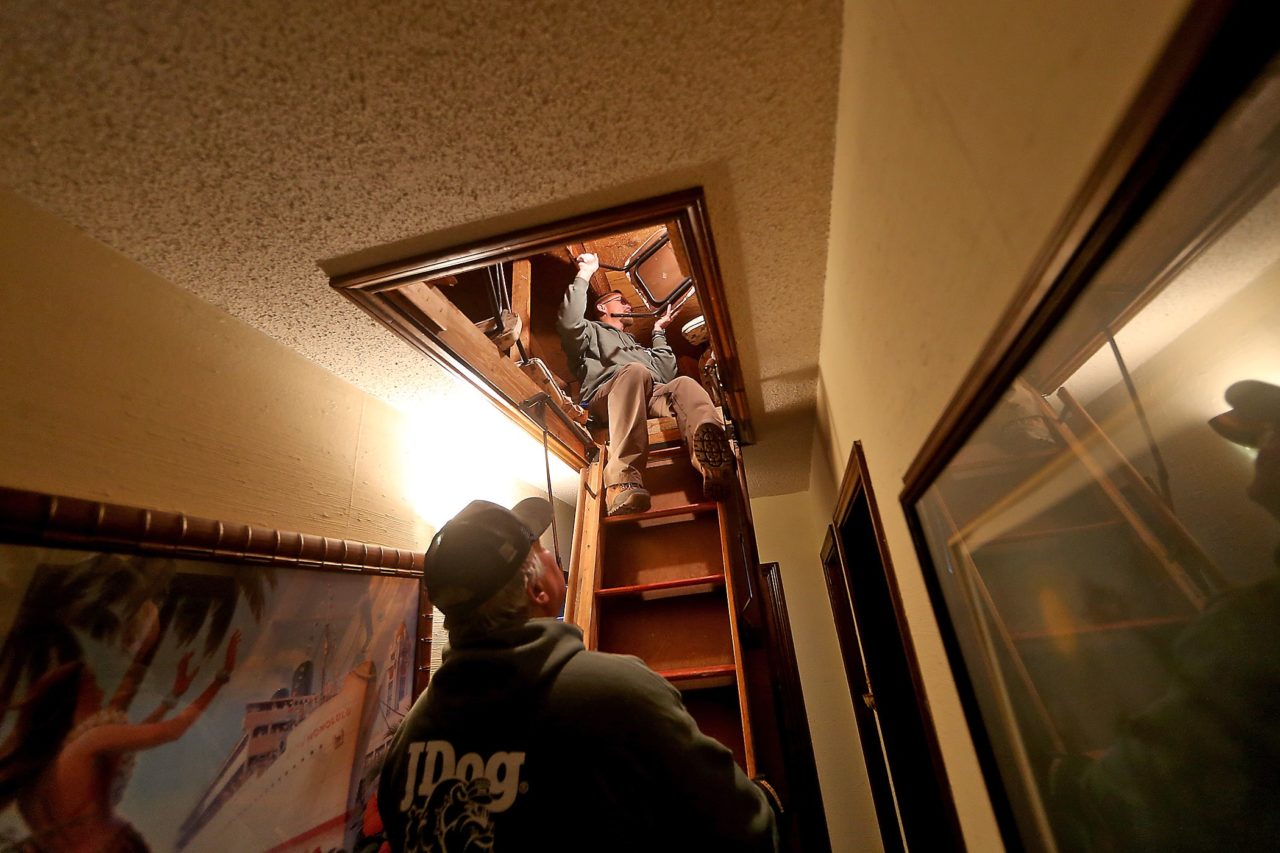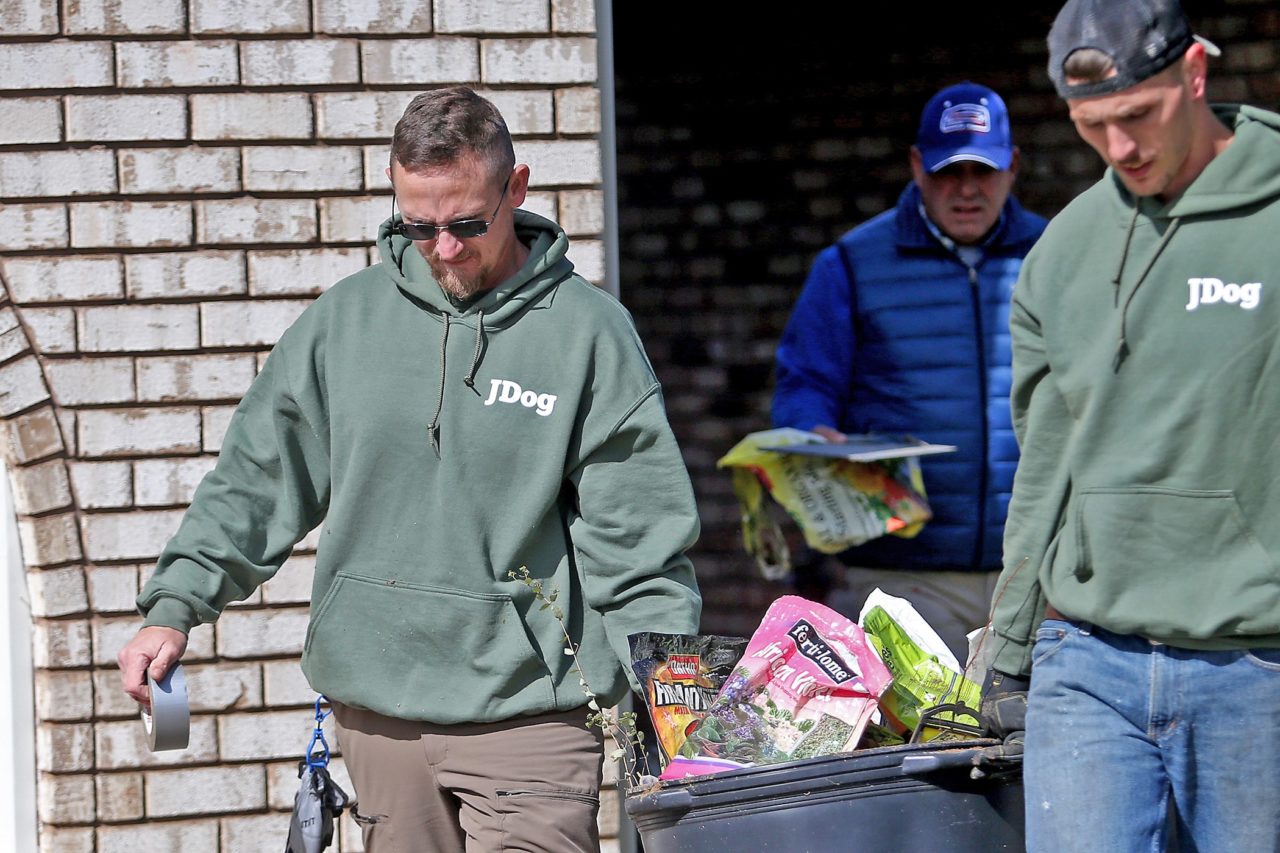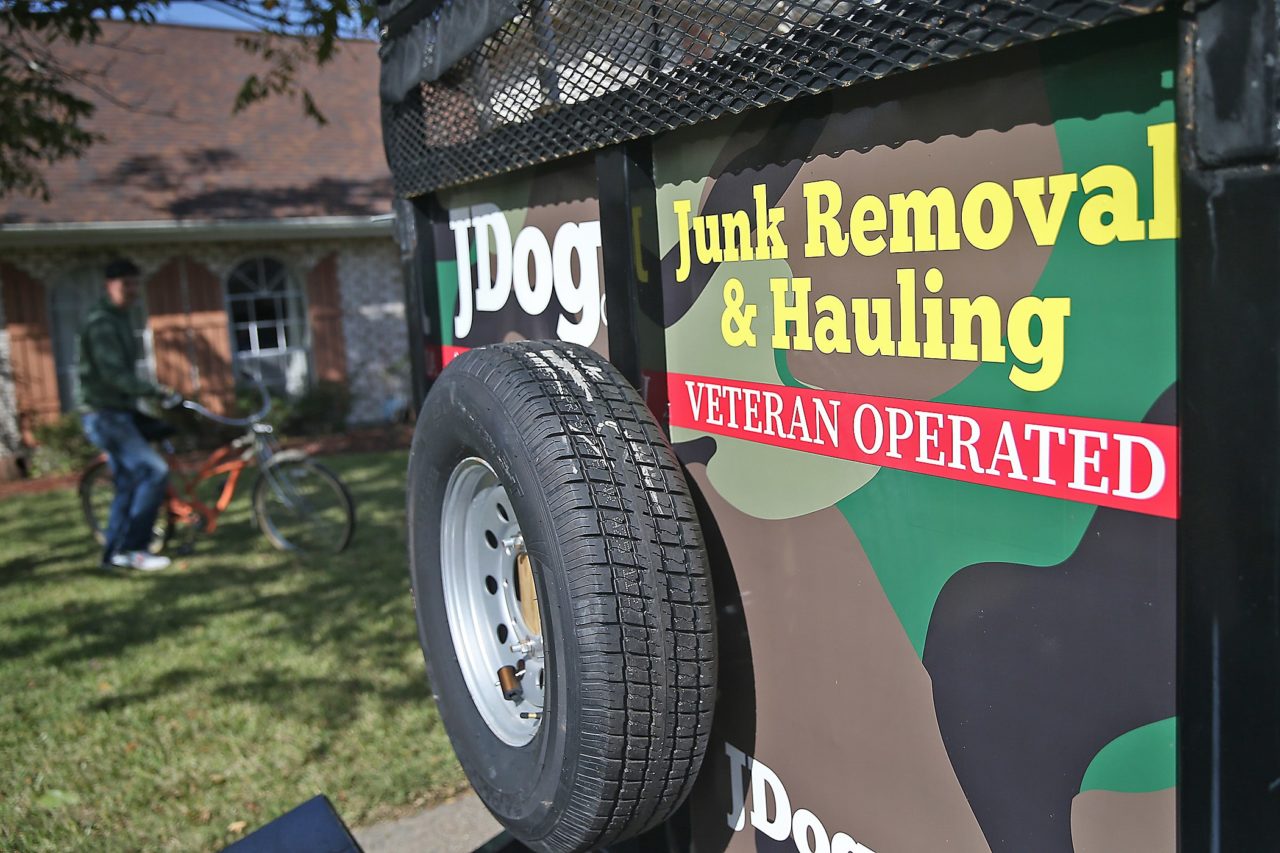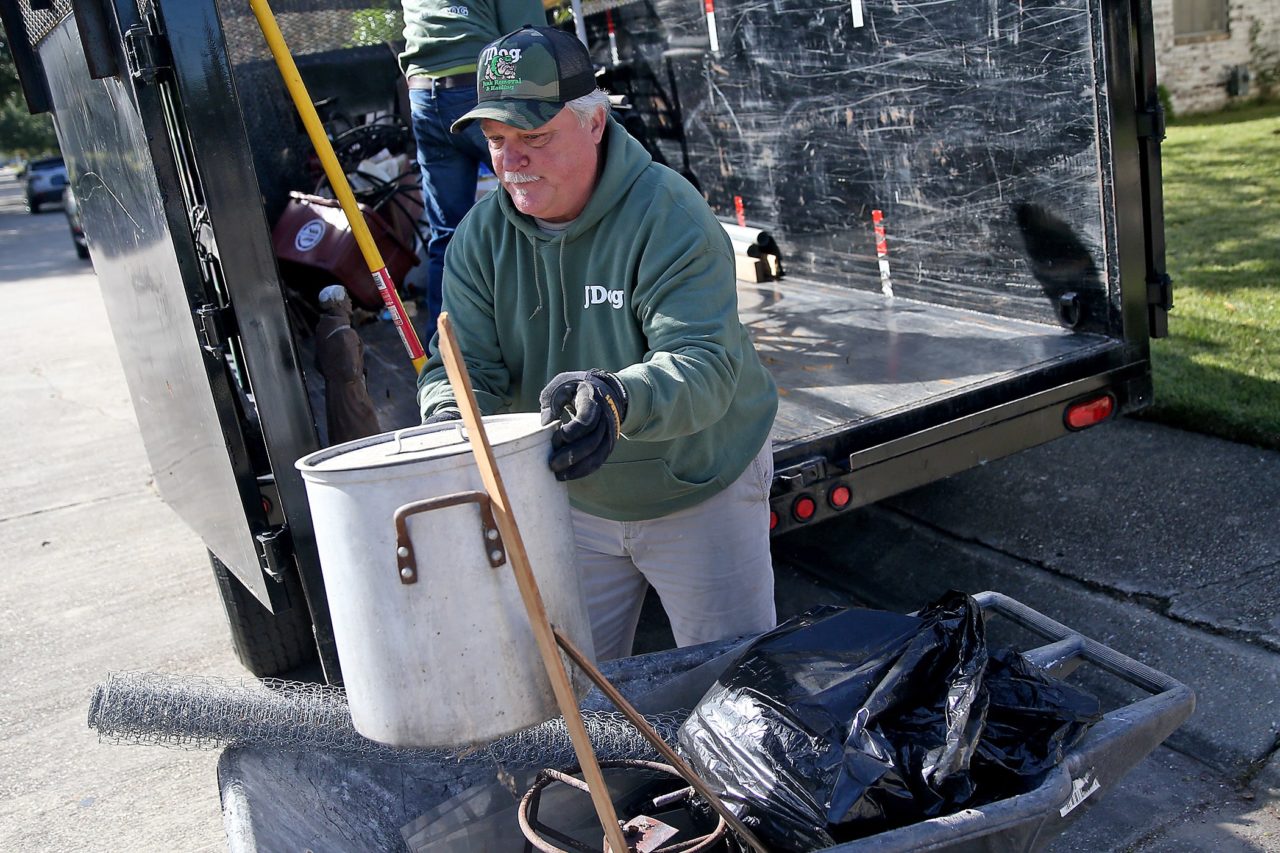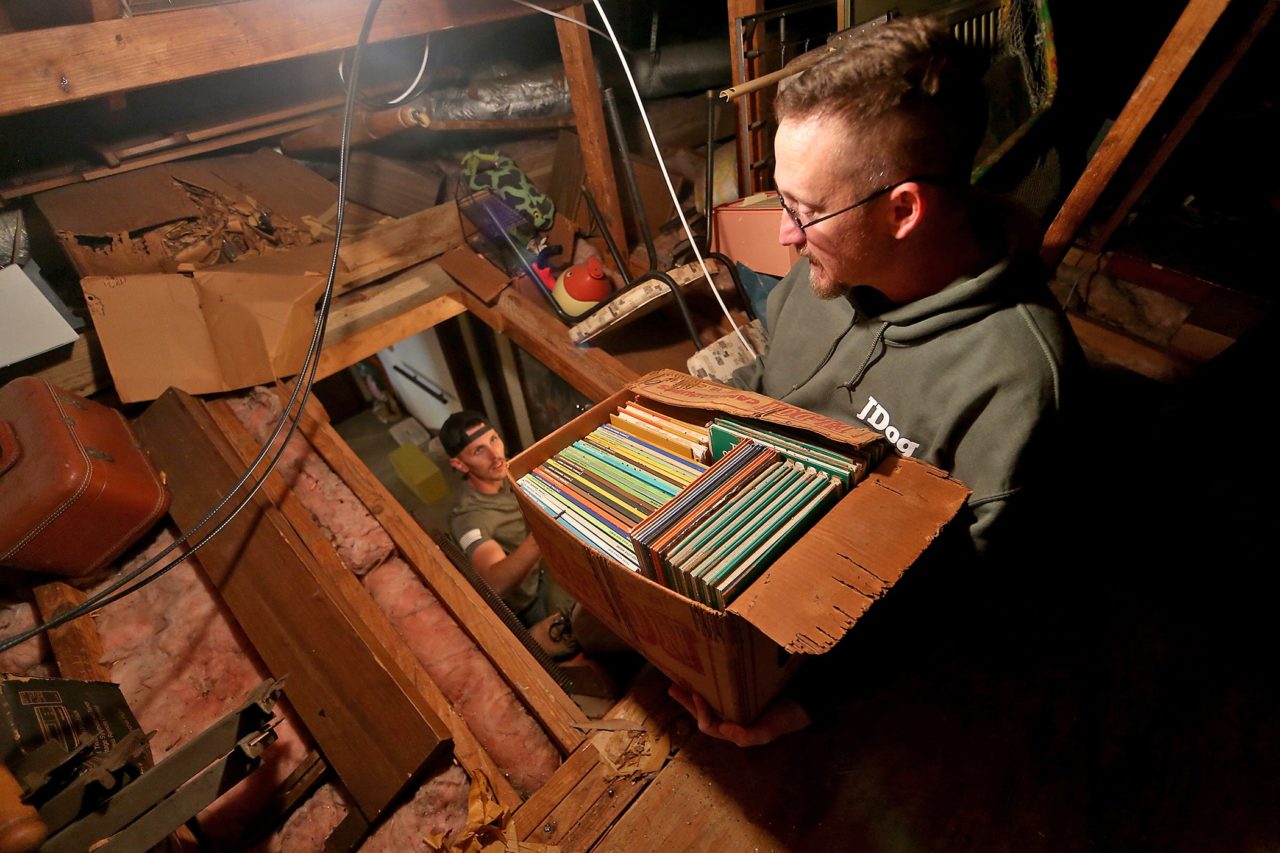Eric Cook seems perfectly at-ease in the kitchen. As the executive chef of Gris-Gris in the Lower Garden District, the native New Orleanian concocts elevated iterations of southern cuisine while under the gaze of curious diners. But nearly 30 years ago, Cook felt quite comfortable on the battlefield surrounded by Marines.
“Going into combat, I wasn’t afraid, because I had my boys with me. No one could hurt us. We went in, and we were maniacs,” said Cook, a combat veteran who served six years in the United States Marine Corps.
He worked in a special operations unit during the Gulf War, and often embarked on both dangerous and highly secretive missions.
“We were front runner guys … we’d come in, blow things up, and get out,” he recalled. Surprisingly, it’s after Cook left the military and arrived back in the American suburbs, that he began to feel vulnerable.
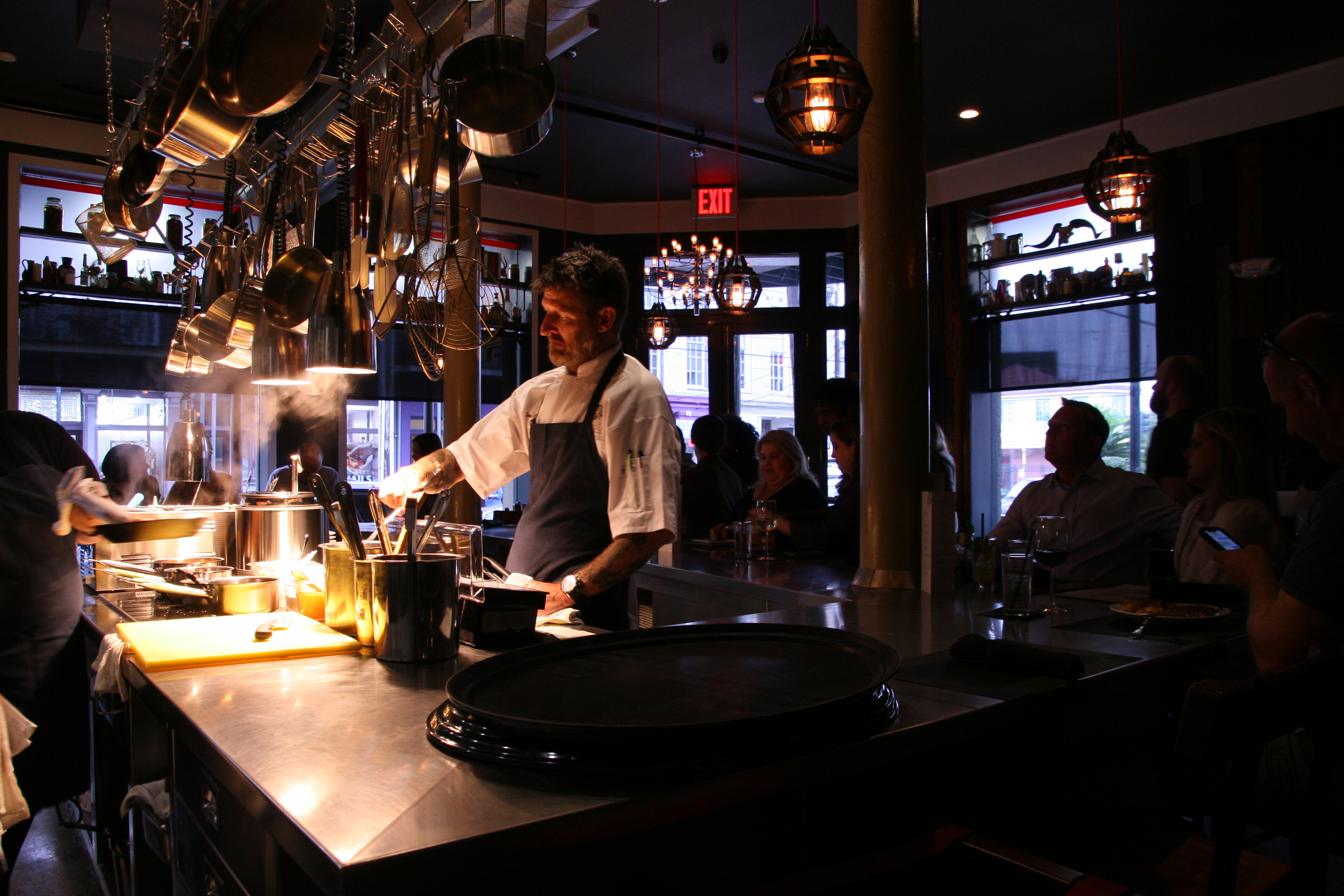
“Your armor and your weapon no longer protect you. You can’t just take over things anymore,” he said. “You become one of the sheep in the herd.”
While serving in the military, Cook had grown accustomed to rigid daily routines that involved carting around a rifle and 200 pounds of ammunition. He was always on the move with his fellow Marines.
Once he became a civilian, however, that lifestyle disappeared.
“I wake up one day and go, ‘What happened?’ I was this very powerful, physical, warrior guy, and all of the sudden, I’m applying to be a cashier at Walmart,” said Cook. “It’s depressing, because you come from this elite fighting force where you feared nothing; no entity is greater than you. Then you come back into the world, and there’s no glory. And it’s difficult.”
Cook became the angry, “bitter veteran type.”
“A lot of guys tend to stray off, myself included. You start drinking and getting depressed,” he said. “Once I stepped out of the military world, I said, ‘I’m done. I’m growing my hair out. I’m growing a beard.’”
(He did in fact grow a beard.)
The U.S. Department of Veteran Affairs (the VA) defines post-traumatic stress disorder (PTSD) as a mental health problem that some veterans develop after experiencing combat.
Cook believes that PTSD partially stems from the trauma of losing the camaraderie that’s shared by members of the military.
“Your armor and your weapon no longer protect you. You can’t just take over things anymore. You become one of the sheep in the herd.”
Because people with PTSD are afflicted with painful memories, they may feel on edge or have trouble sleeping.
About 12-percent of Gulf War veterans have PTSD in a given year, according to the VA. Between 11- and 20-percent of veterans who served in Operations Iraqi Freedom and Enduring Freedom experience PTSD.
According to the National Council for Behavioral Health, 30-percent of active duty and reserve military personnel deployed in Iraq and Afghanistan have a mental health condition requiring treatment. However, less than 50-percent of returning veterans receive any treatment.
The V.A. reports that approximately 22 veterans die by suicide every day.
“The Gulf War was probably the last time this country came together and said, ‘Support our troops’,” said Cook, recalling how yellow ribbons were once wrapped around the trees in his neighborhood. His family and friends treated Cook and his Marine mates like “conquering heroes.” Now, he says, the attitude towards the military is similar to what it was during the Vietnam War-era.
“There are no yellow ribbons on trees. There is no support for our troops,” said Cook, adding that everything boils down to politics, and whether or not you support the 45th president of the United States.
“The transition from people wanting to die for their country every single day, and working hard every single day, to coming back to where people don’t give a s—-, was just the biggest transition,” he said. “You can go down some dark roads.”
Some veterans transitioning into civilian life are unable to find helpful programs or to meet folks who have experienced similar struggles – or triumphs, for that matter.
Taking action
“…you look around, and all of the sudden realize, ‘I’m one of these disgruntled, camouflage jacket-wearing guys, whose been swept under the rug.’”
In 2016, Cook launched the First to Fight Foundation, a nonprofit organization that assists military veterans and their families. The Foundation, which Cook runs with his wife, Robyn, and his sister, Monica Prechac, connects veterans to one another, and to the resources that will help them maintain a successful civilian life.
First to Fight provides veterans with financial relief; assistance in navigating VA benefits and services; and team activities, such as fundraisers, which allow them to recreate the sense of camaraderie they experienced while in the military.
When Cook was transitioning into civilian life, he said he couldn’t rely on the VA.
“I’ve had nothing but a bad experience with them,” said Cook, recalling a time he visited a VA hospital because he was suffering from a leg injury. “It’s like being at the DMV, if the DMV was a hospital. You sit in a room with a hundred people for hours, you look around, and all of the sudden realize, ‘I’m one of these disgruntled, camouflage jacket-wearing guys, whose been swept under the rug.’”
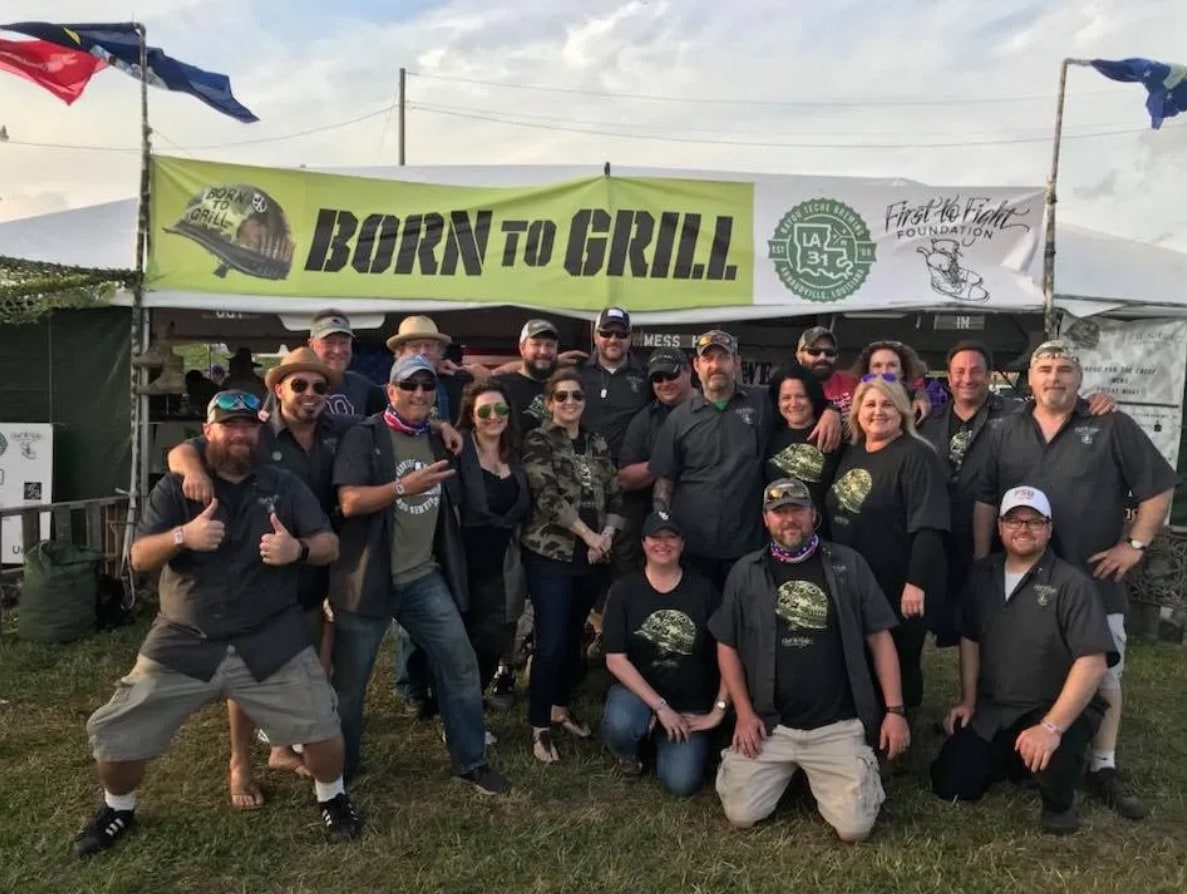
He left the hospital that day without being seen by a doctor, and sought help from Monica, who works in the medical field. That was just one situation where Cook was able to “skirt the whole VA thing.”
Robyn, on the other hand, believes that overall the VA is a decent organization.
“They have all of these programs, and all of these things that they do for veterans, but it’s impossible to utilize them,” she said. “There is so much paperwork, red tape, and back-and-forth. It’s so difficult that, unless these veterans have a wife or a mom who’s doing that paperwork for them, they’re not doing it.”
Over the years, the Cooks have met veterans who were able to successfully navigate the VA processes and get help. Through their First to Fight Foundation, they put those veterans in touch with another.
“We started forming relationships, where we’re like, ‘Oh, you want to buy a house? I know a guy who did that, so let’s get advice from him on how to work the VA program,’ basically,” said Robyn.
Cook emphasized that reputable military veteran organizations do exist.
Aside from being the president of the First to Fight Foundation, Cook is a member of the Veterans of Foreign Wars, and an active volunteer for such organizations as Wounded Warriors, The Legacy Foundation, Disposable Heroes Project, We Heart Veterans, and The American Red Cross.
Bridging the gap between veterans and civilians
“You take a guy that was leader-trained and was responsible for sometimes millions of dollars worth of equipment … when he gets out, he’s got to start over again.”
JDog Junk Removal & Hauling, a national organization owned by a veteran and military family, offers junk removal and hauling services for residential and commercial customers. They donate and recycle up to 80-percent of the items they haul.
JDog also provides jobs for veterans.
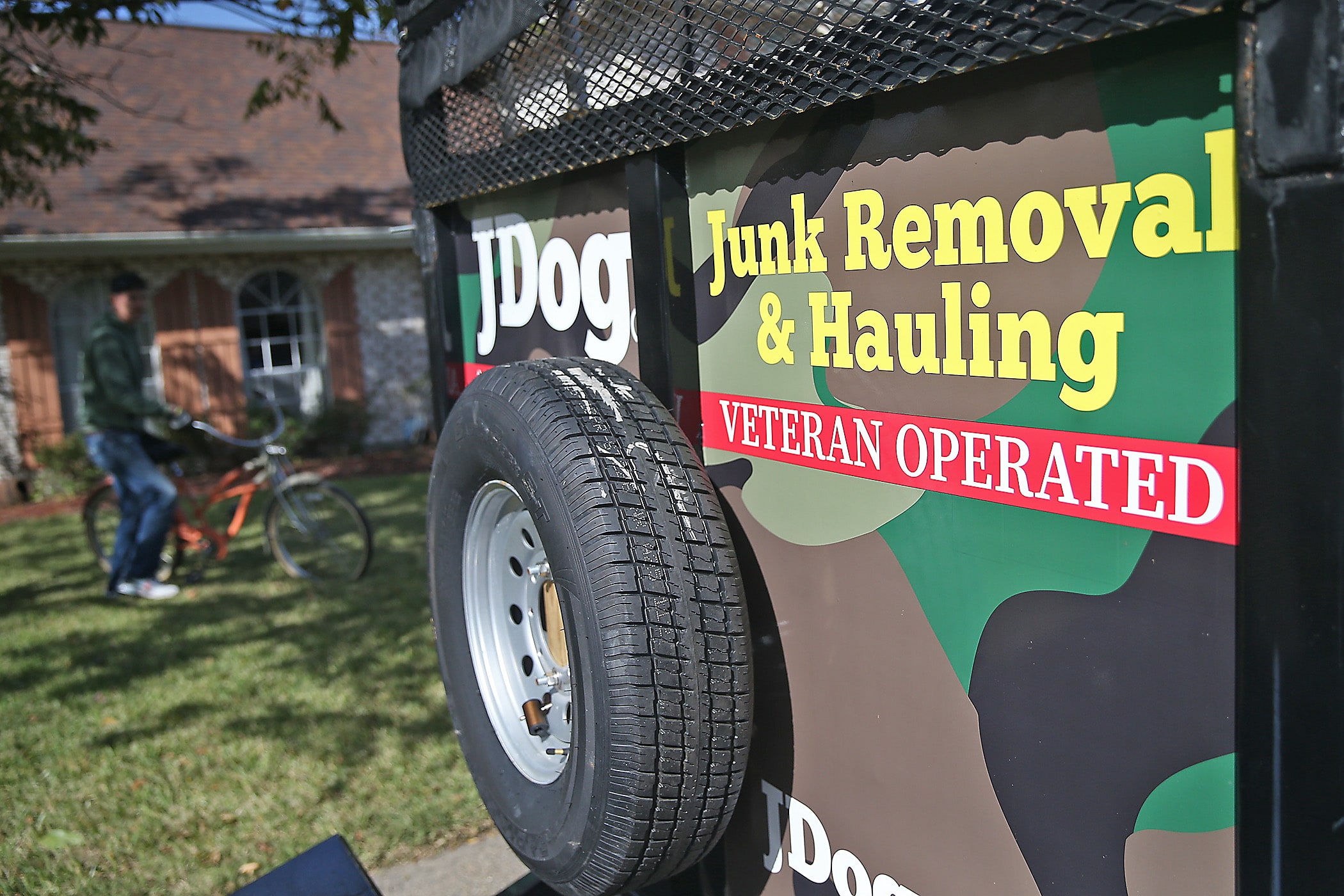
The organization comprises satellite companies across the country, including one in the greater New Orleans area. According to their website, they deliver services “the military way – with Respect, Integrity, and Trust.”
On a recent chilly Wednesday, the local branch of JDog was helping a homeowner in Harahan downsize – an emotional process of sorting through mementos, deciding what will stay and what will go.
Jack Keen and two members of his team carefully, but quickly, removed belongings from an outdoor shed and a crowded attic, and presented the items to the client before carrying them to the company truck.
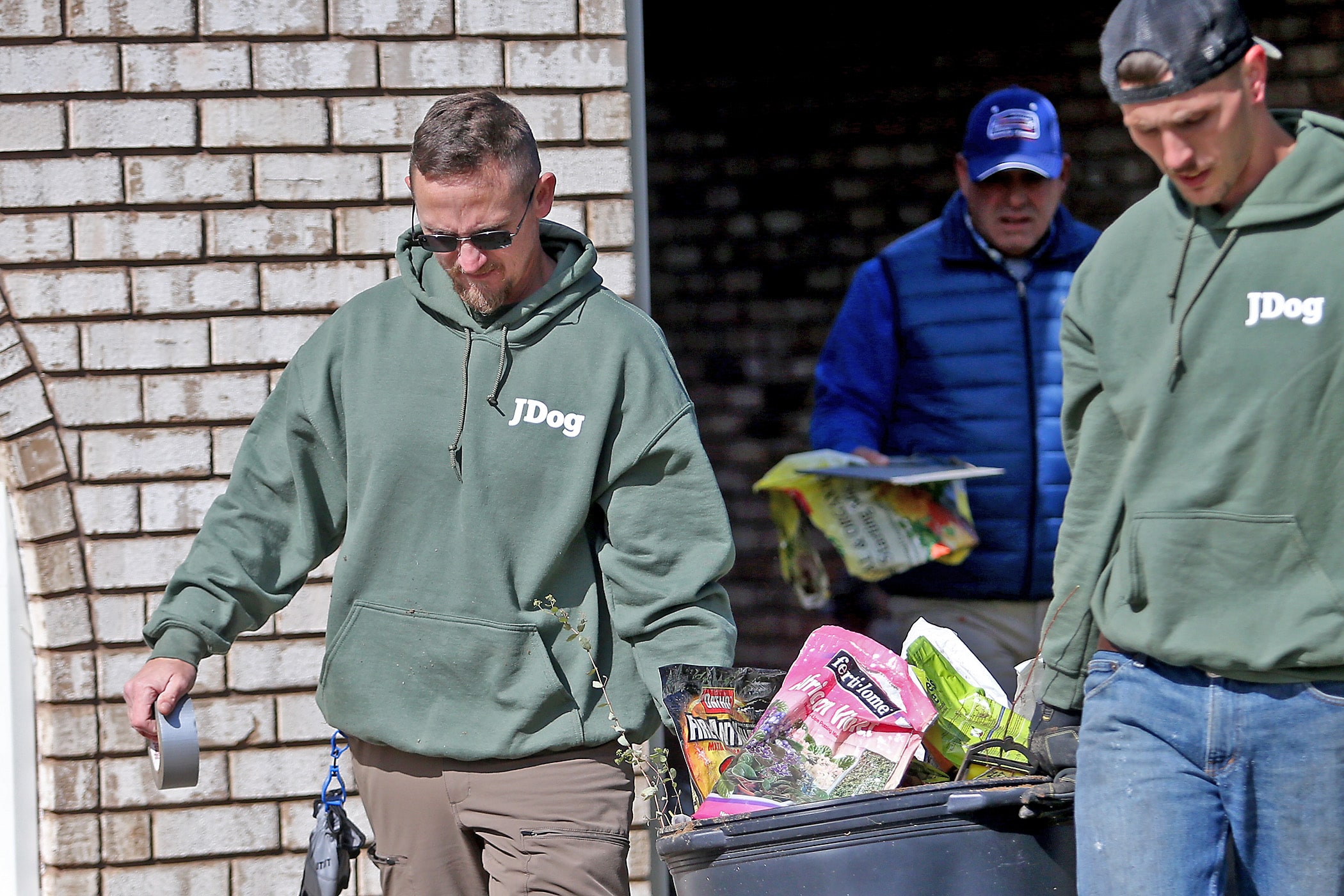
Keen, who is originally from central Arkansas, but now lives in southeast Louisiana, joined the Army when he was 17 years old. He completed three tours in Iraq, along with stints in Israel and Jordan.
“I was one of those guys that, when I first retired, wanted nothing to do with the government or the military,” said Keen, adding that over time, he felt compelled to assist veterans. “I saw (JDog) as an opportunity to employ veterans, and also help out our community.”
Keen said one of the biggest challenges faced by military veterans is the “translation of skills.”
“You take a guy that was leader-trained and was responsible for sometimes millions of dollars worth of equipment … when he gets out, he’s got to start over again,” said Keen.
Like Cook, Keen believes the absence of camaraderie, and that “sense of a mission accomplished,” takes a toll on veterans.
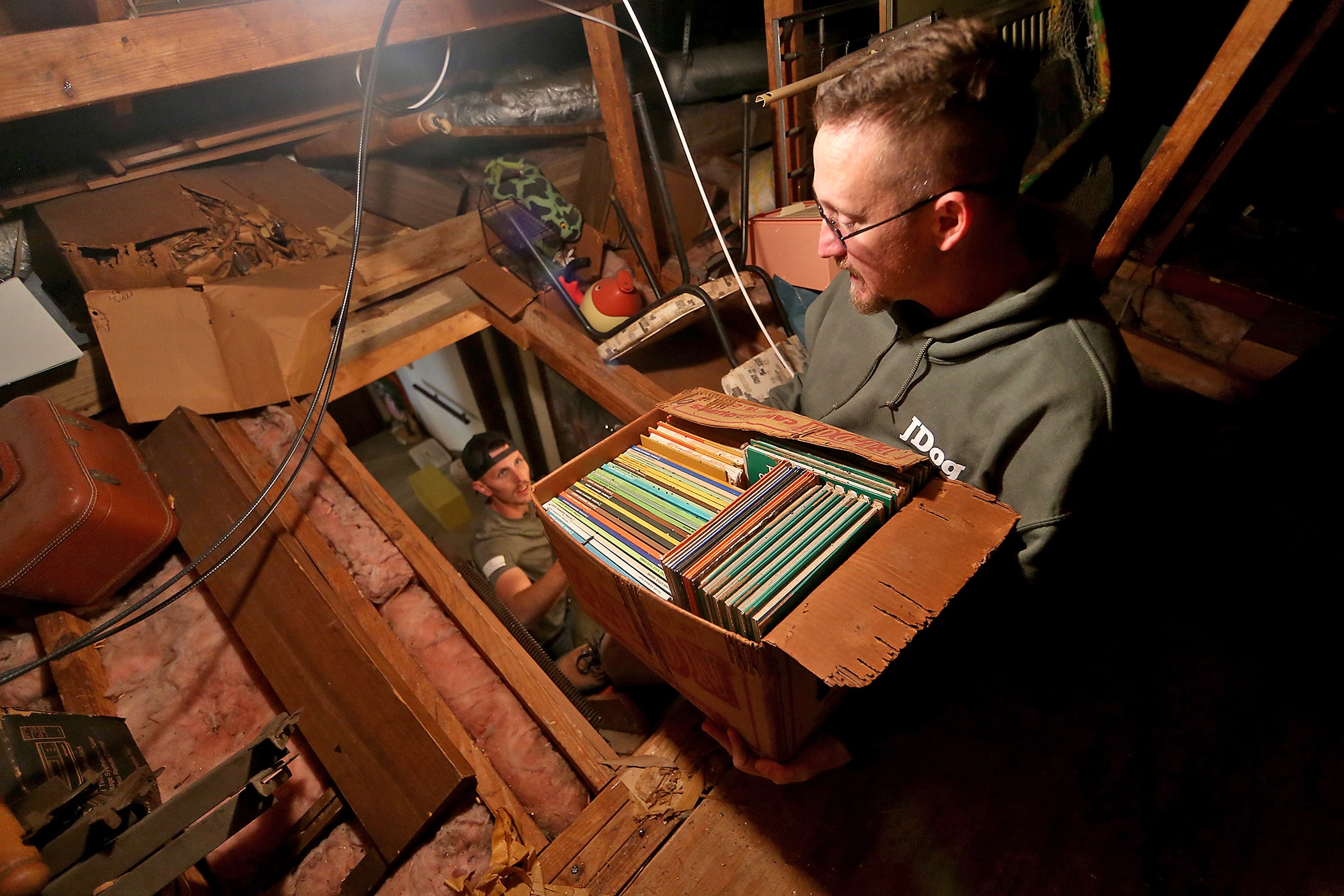
“In the military, every day, you know exactly what your job is going to be, and you know what you’re trying to accomplish,” said Keen. “It could be as simple as working on a Humvee to ‘We’re going to take that hill.’ We know the mission.”
JDog veterans “speak the same lingo” as one another, work towards the same goal, and possess shared military experiences.
“When one of us is having a problem, we can each read that because we’ve been through that,” said Keen. “We can have that talk with each other and make sure that we’re doing okay.”
JDog is hoping to lower the national unemployment rate of veterans to less than 1-percent. According to U.S. Bureau of Labor Statistics, in 2018, the unemployment rate for veterans who served on active duty in the U.S. Armed Forces – at any time since September 2001 – declined to 3.8-percent.
“Veterans can get together and feel a sense of ownership in the community,” said Keen. “We don’t want hand-outs. We want to work and to do the right thing.”
Keen said that work through JDog decreases the gap between civilians and the military – a gap that he believes has grown over the years.
“Clients can see that we’re going to treat them with respect, integrity, and trust,” said Keen. “They know that we’re going to take care of them.”
Eric Champagne, the local JDog team lead, has worked for the company for nearly four months. The St. Charles Parish resident spent five years of active duty as a Marine.
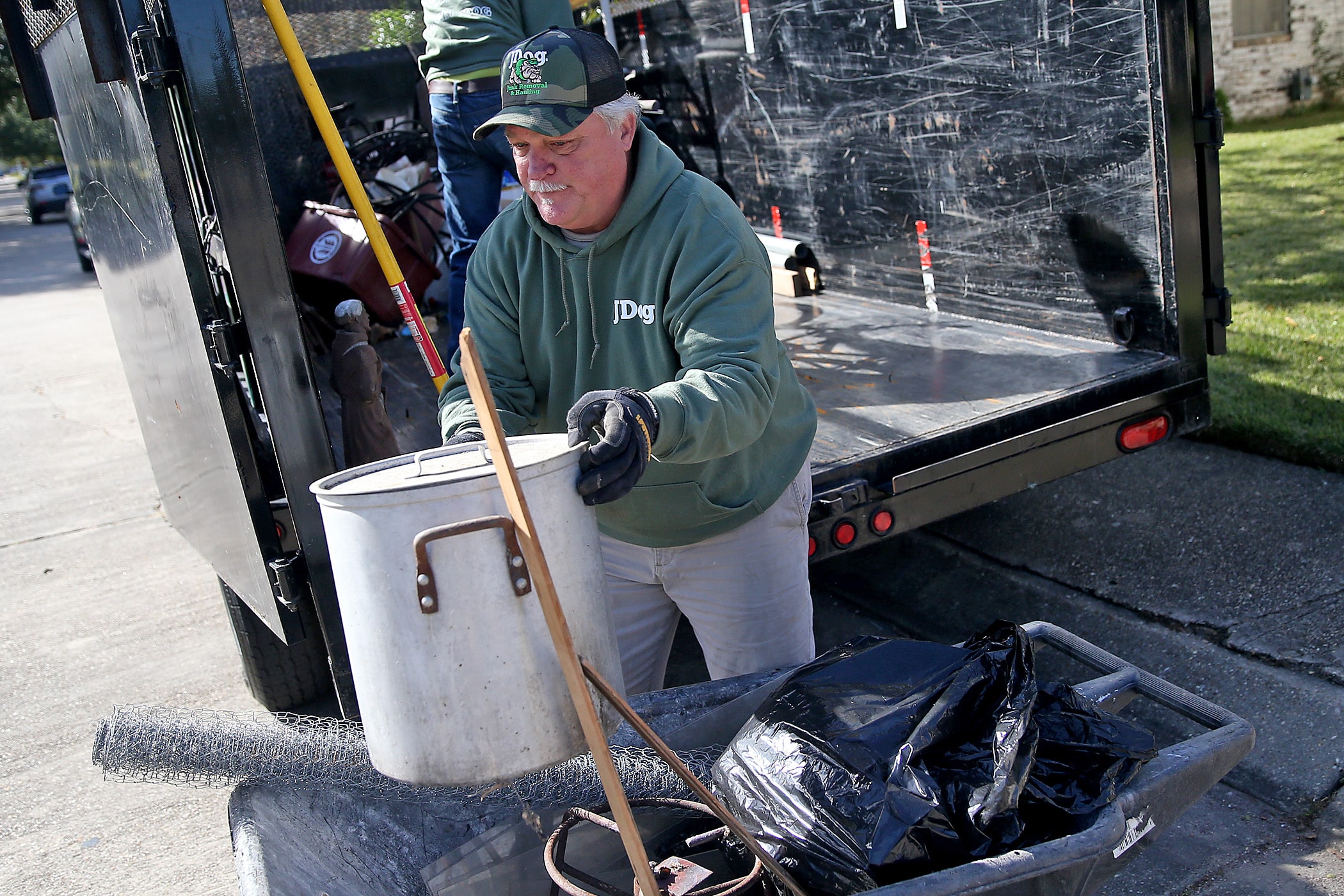
“You’re so used to the camaraderie,” said Champagne, explaining that he’s actually experienced a smooth transition into civilian life. “We’re fortunate in south Louisiana that we all wave and say ‘hi’ (to one another). But it’s not like that in other places.”
Champagne’s job with JDog has enabled him to once again work alongside like-minded people.
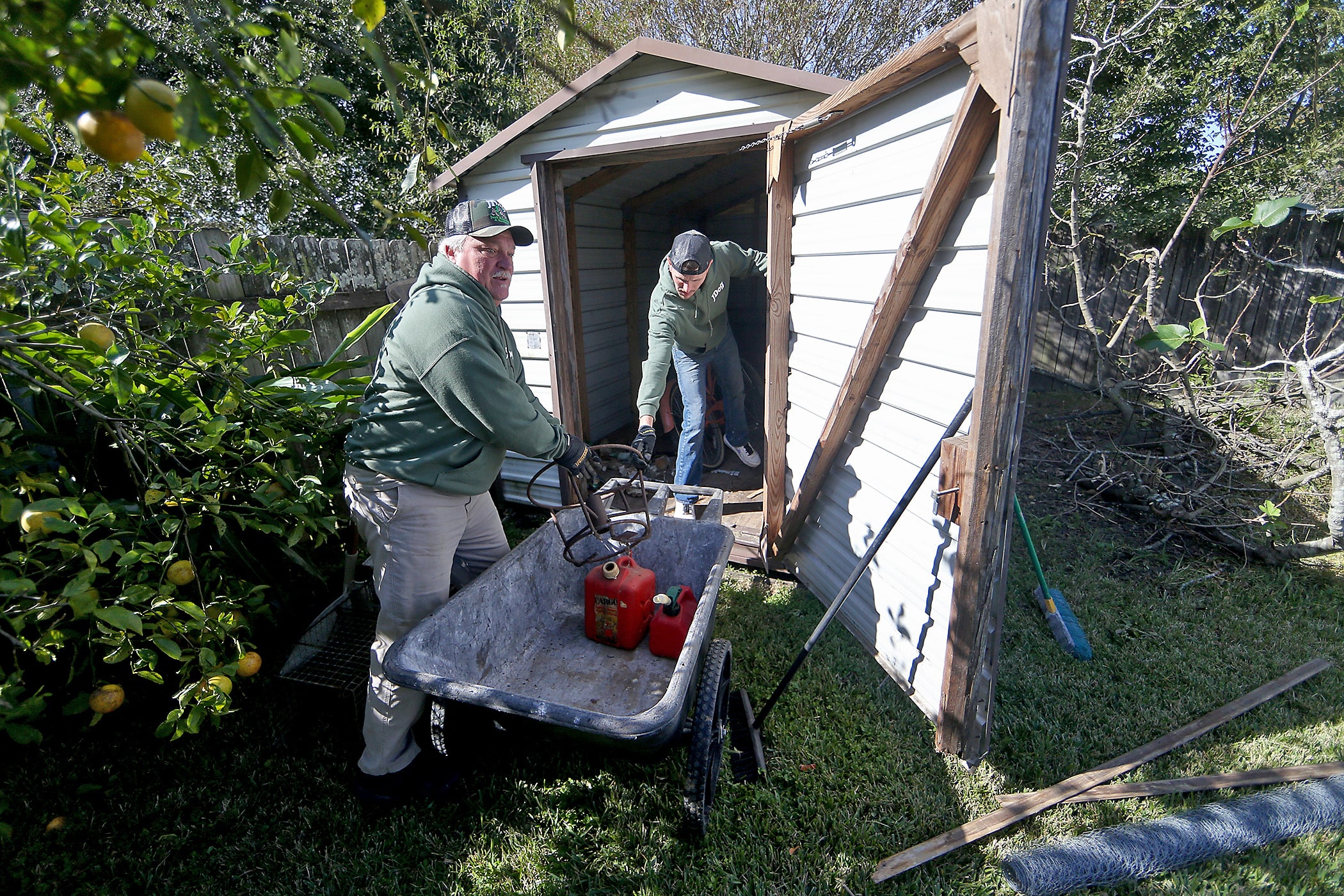
“Although we’re from different (military) branches, we all have the same thought process,” said Champagne. “If we see one man that needs assistance, we jump in and help. There is no ‘This is not my role, this is your role.’”
Playing for the same team
“Our team started as four people and now, we’re up to almost 60 people. We all come together for a common cause, and almost become military again.”
Cook, meanwhile, found solace in the kitchen. The hospitality industry involves long, late hours – which wasn’t unusual for Cook. But he also appreciated the chain of command typically present within a restaurant.
“Me saying, ‘Yes, chef.’ Was like saying ‘Yes, sir.’ I could take direction,” said Cook. He could also relate to being both “a crazy marine guy” and “a crazy line cook guy.” (Though that changed a bit once he began moving up the ladder.)
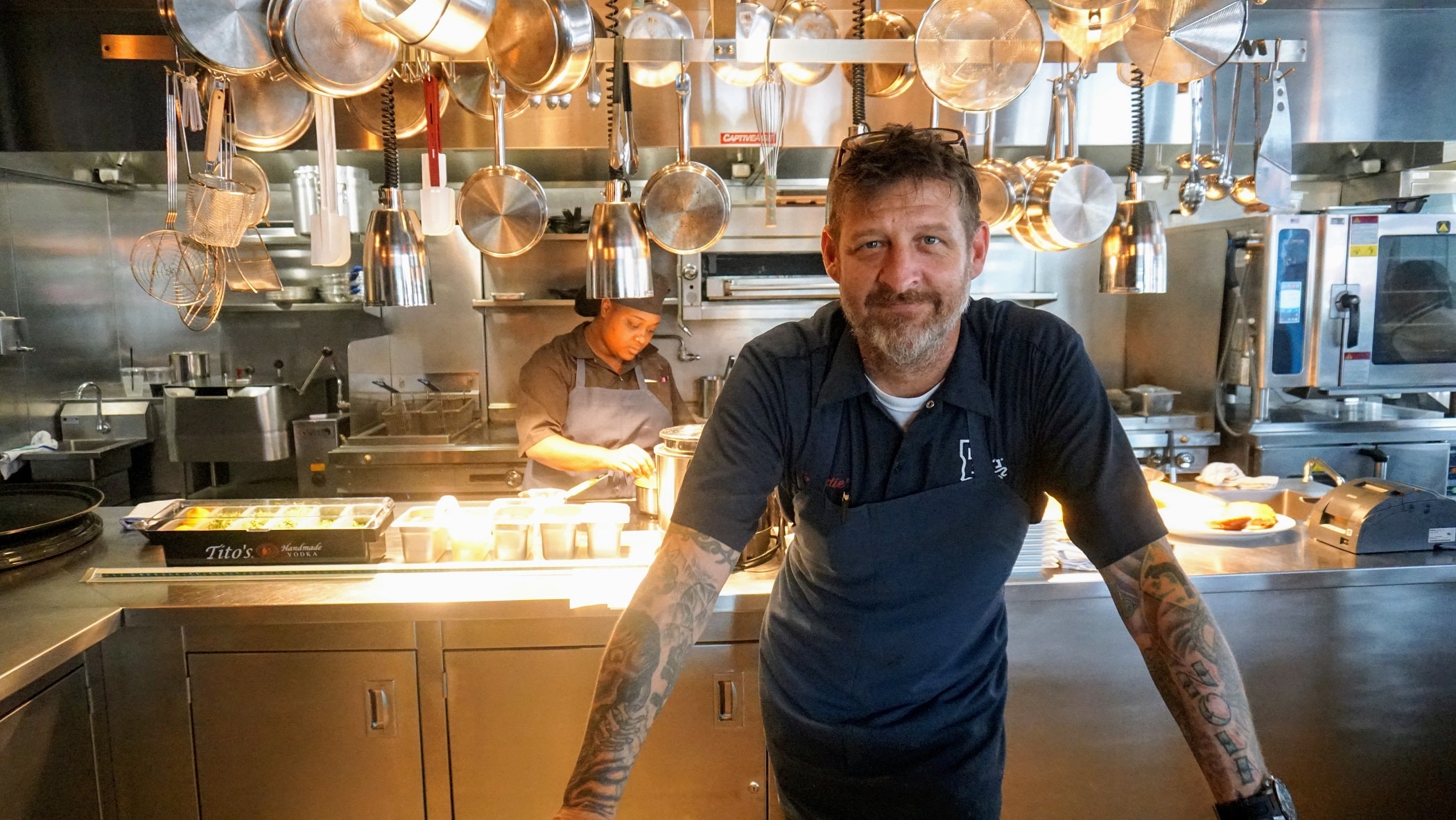
In a sense, for Cook, bustling through the kitchen mimicked Marine life.
“It’s very much like building a military rifle squad,” said Cook. “Everyone has their job to do, but we have the same objective.”
Cook’s culinary career has led him through some of the finest local restaurants, including Dickie Brennan’s Bourbon House. The chef has made appearances on national cooking shows, and he has helped devise meals for the U.S. Marine Corps Ball and U.S. Navy Ball. He also prepared a special dinner for President George W. Bush, the president of Mexico, and the prime minister of Canada.
Although his thriving restaurant keeps Cook busy, growing First to Fight remains a priority. Throughout November, Gris-Gris will sell a signature cocktail, and $1 from each sold will benefit the foundation.
“We’re still logistically controlled by my wife and my sister, who tell us where to go, when to be there, and how to do it,” said Cook, only half-joking.
First to Fight raises money through various fundraising events, such as the Steel Beach Picnic, and participates in philanthropic festivals.
A few years ago, they established “Born to Grill” – a barbecue team that participates in Hogs for the Cause, the annual springtime extravaganza that raises money to benefit families battling pediatric brain cancer.
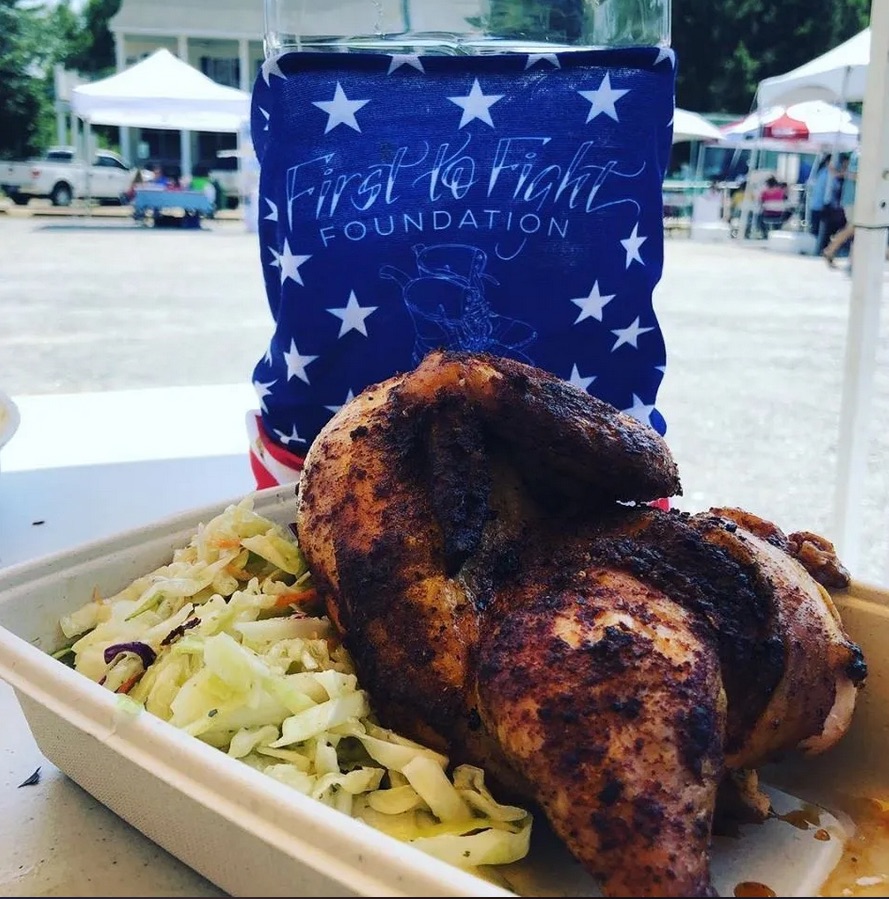
Each year, Born to Grill – Whole Hog champions – build a massive and elaborate compound on the festival grounds, where they serve beer, barbecue delights, and good vibes.
“Our team started as four people and now, we’re up to almost 60 people,” said Cook, explaining how each person has a job – whether it be constructing the booth, handling money, or cooking. “We all come together for a common cause, and almost become military again.”
Cook acknowledged that moving from the “military world to the civilian world” takes a while.
“You have to be patient. You have to understand that there are people out there willing to help you get to where you want to be, but you have to take care of yourself first,” he said. “Find something you’re passionate about. Find people who are passionate about it with you, and start a new tribe.”
Resources for Military Veterans:
- Humana Inc. launched the Humana Honor Medicare Advantage plans for 2020, which are designed to complement health care provided through Veterans Affairs (VA). www.humana.com/medicare/veterans-benefits
- The Louisiana Veterans First Business Initiative was championed by Governor John Bel Edwards during the 2019 legislative session. It honors Louisiana veterans by recognizing businesses owned by a veteran, an active-duty or reserve military member, or a Gold Star spouse. www.laveteransfirst.org
- Based in the Greater New Orleans area, United States Veterans Service Dogs helps veterans return to a new “normal” by placing them with service dogs. The canines can help mitigate the effects of mental and physical disabilities. www.usvsd.com


